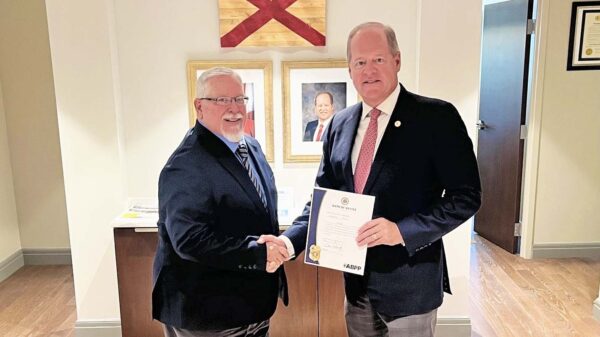I already wrote an article about Governor Kay Ivey’s wise decision to address the flaws in the incentive good time policy for Alabama’s nonviolent offenders. Again I’ll say that was a step in the right direction, even if Governor Ivey does not realize it.
Let me explain why I say this. Back in January of 2019, Alabama lawmakers passed the Voluntary sentencing standards through Alabama Code Title 12 §12-25-31. Many know this as the “Truth and Sentencing” or “Point System Guidelines.” They did so in order to address the draconian over-sentencing practices of the habitual offender act era. This practice helped clog the overcrowded and violent prisons, as well as allowed diversity in sentencing by racist and biased judges.
Since Alabama was under the microscope of the Department of Justice at that time, that was a good start in addressing the real issues. However, it wasn’t the end all be all solution. Alabama lawmakers understood the flaws in the laws as Governor Kay Ivey understood the flaws in the good time policies. Understanding this and making one step forward should follow up with another step forward, then another, not three steps backward.
Unfortunately, Alabama has been taking no more forward steps in this situation but has been taking many steps backward. For example, Alabama has all but stopped granting paroles, failed to repeal the Habitual Offender Act (HOFA), and now state Sen. April Weaver, R-Alabaster, is proposing a bill to cut good time earning incentives for those currently eligible for earning such credits for good behavior while in the Alabama Department of Corrections.
Right now, Alabama suffers from understaffed prison facilities at a historically alarming low, as well as the highest in violence, overdoses, and suicides in the nation. Under these current conditions, the work and living environment for ADOC staff and confined citizens is at a very dangerous level. One of the leading contributions to these dangers is the fact that nearly 90 percent of those in these prisons have no incentive (such as incentive good time credits) to inspire good behavior and rehabilitation.
This is not knowledge that our lawmakers and Governor are unaware of, so why would they not take steps to repeal the HOFA and give all who are eligible to return back to society good time?
Motivating incarcerated citizens to change criminal behavior and to participate in rehabilitation or educational programs can be very hard. Judicial cultures in America have only one way of looking at incarceration, and that is punishment.In order to stimulate change and learning to motivate good behavior, you must reward the effort to progress, not just punish for past behavior or crime.
Examples of positive incentives in the typical work society include recognition, promotions, raises, and so forth. Negative incentives: include reprimands, demotions, pay decreases, and other kinds of penalties. This example mirrors what is earned through the incentive good time credit system.
However, the Alabama Department of Corrections only incentivizes less than 15 percent of those nonviolent offenders they incarcerate with things like store privileges, phone access, and visits from family. This is also true with those that are not receiving incentives, like violent offenders, for successfully completing offered educational and rehabilitation programs. Nonetheless, they do issue out many forms of negative incentives, which only creates loss of hope.
Mastering the incentive theory of motivation can help improve management style, help those you incarcerate feel more valued, instill hope, and help focus goals on lowering recidivism and an economic cost that haunts the state.
Psychologists have come up with a litany of different theories about what most essentially motivates human behavior. Those who espouse the incentive theory of motivation believe external factors, both positive and negative, are paramount in determining how people will behave. It’s time we start acting with common sense when it comes to our prison system in Alabama.
Common sense tells us if we want to help keep people from bad behavior, we need to give them a reason to change. Common sense also tells us if we say the HOFA was “wrong then,” it is wrong now and needs to be repealed. Let us push for good time incentives for all who can return back to society and repeal the draconian habitual offender act.























































